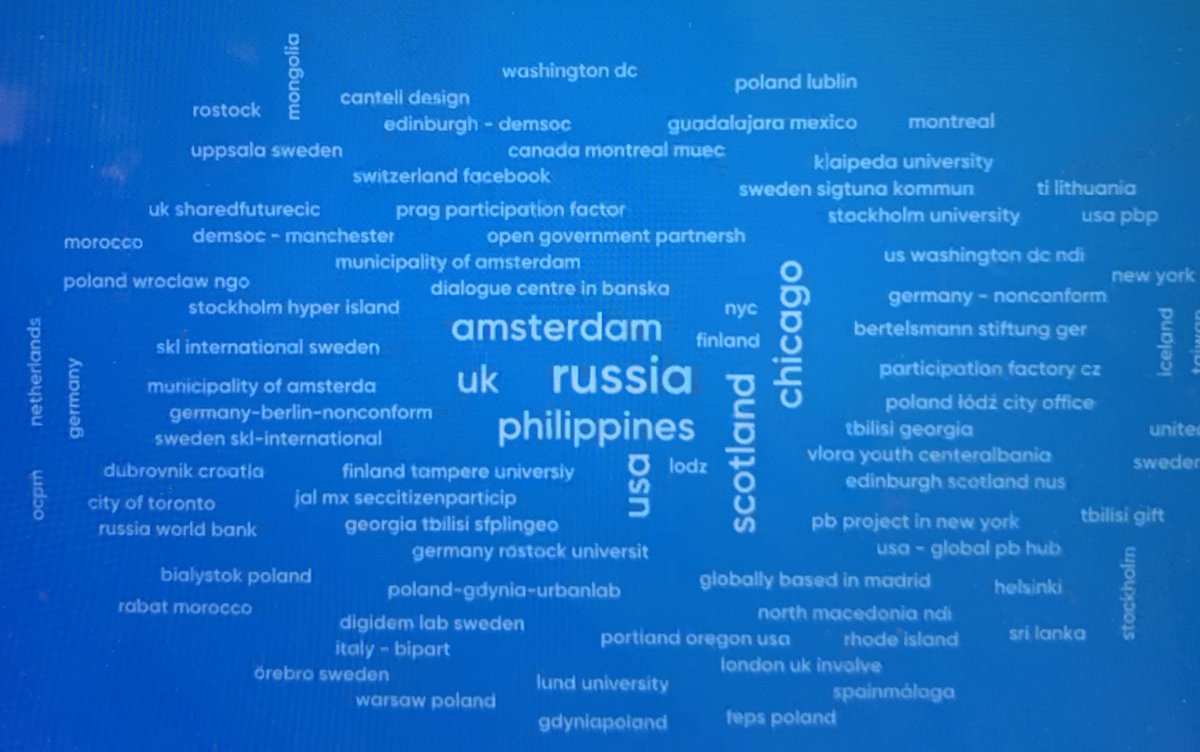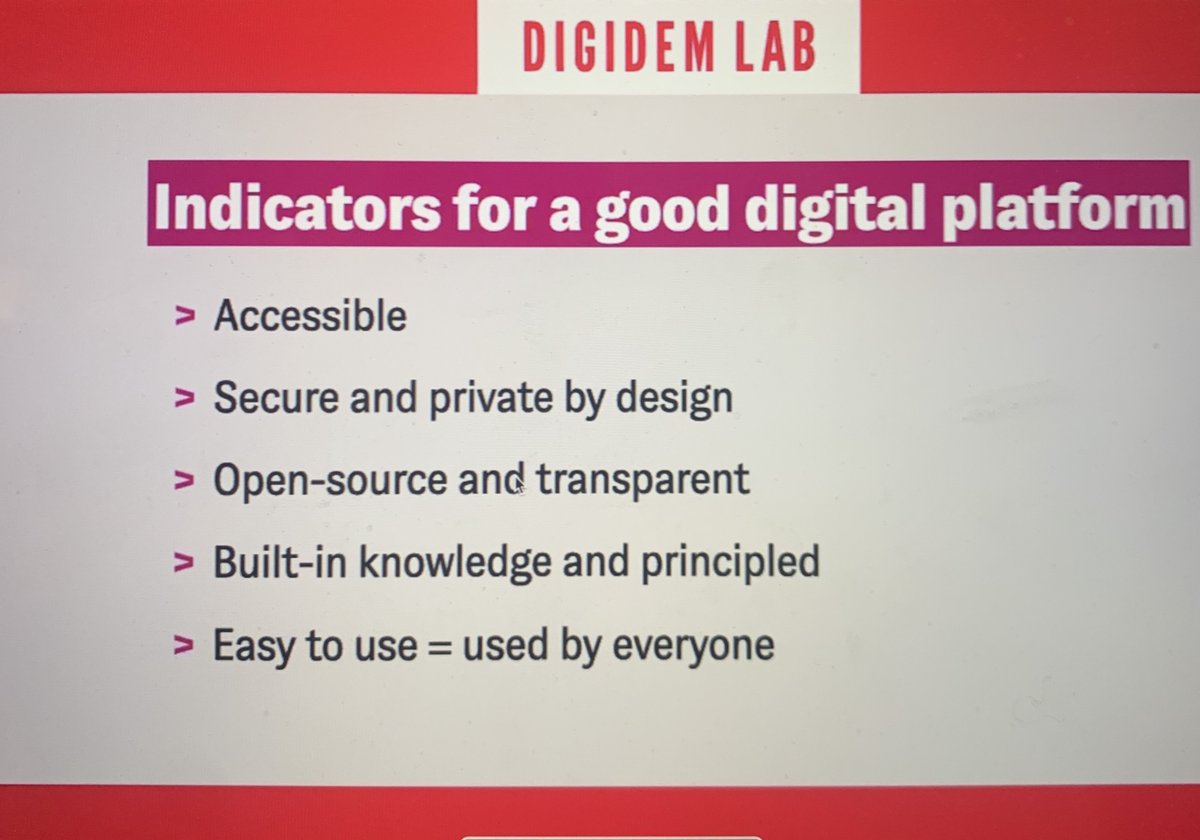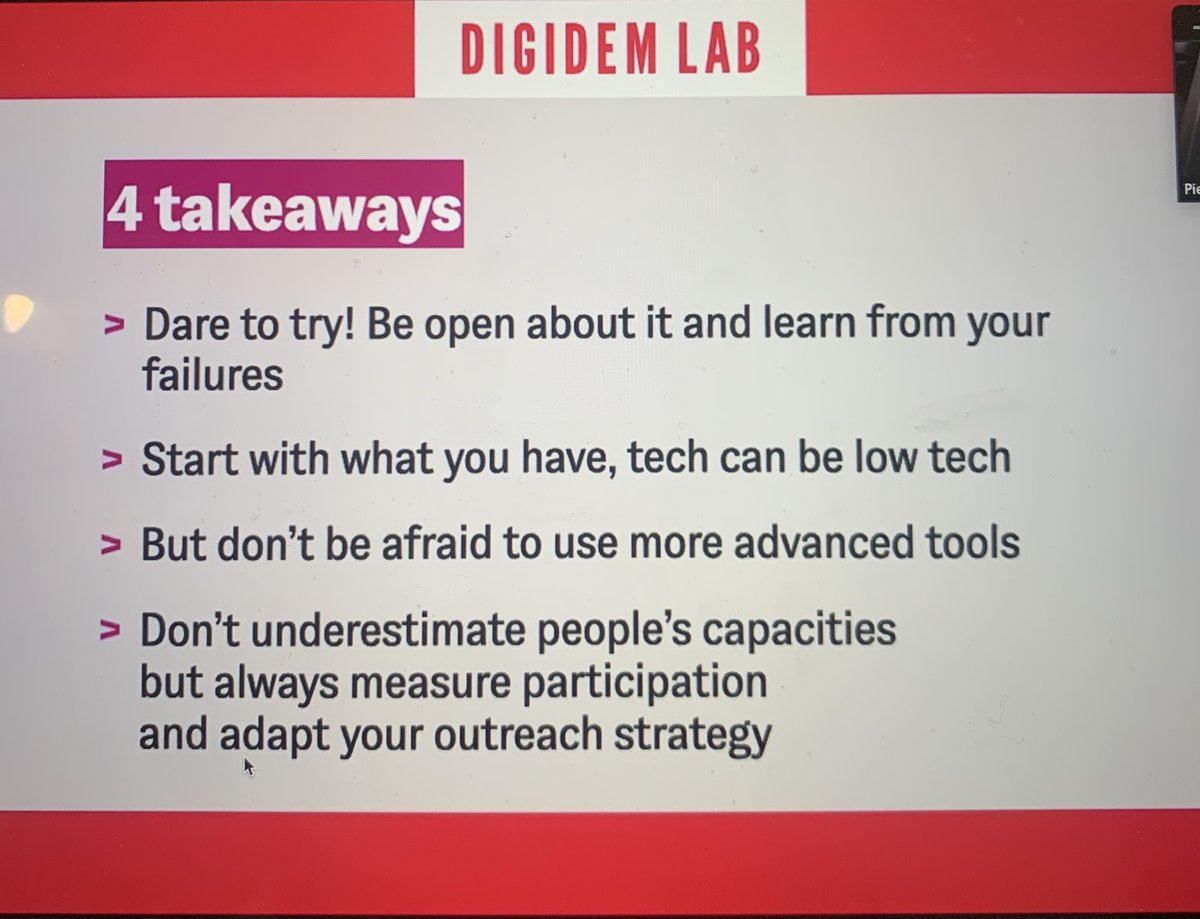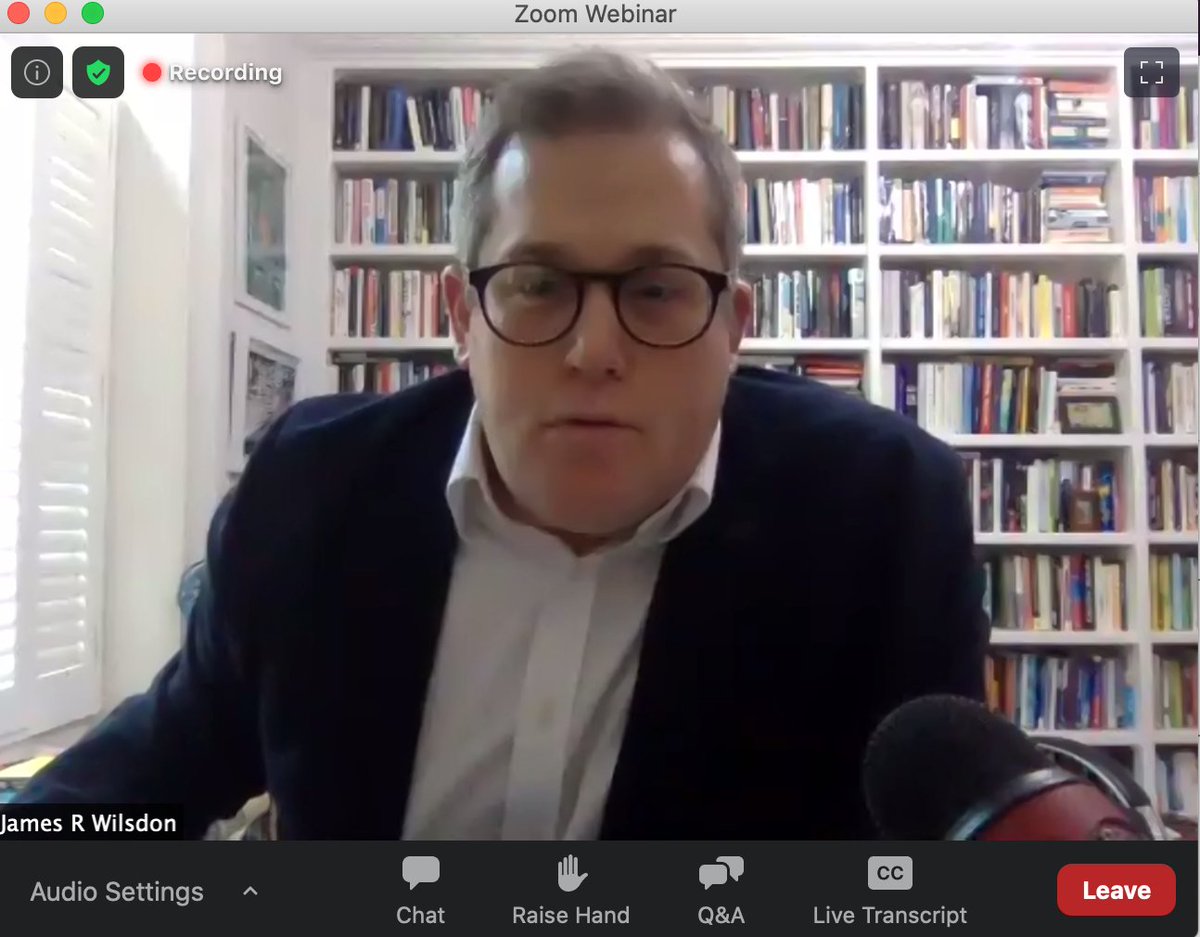I'm sitting in on the @demsoc @digidemlab Webinar exploring Digital tools for citizen participation. I'm going to do one of my mega-threads again. Feel free to mute for an hour! eventbrite.com/e/webinar-digi… 1/ #CitizenParticipation #DigitalDemocracy
I'm sorry that I'm not sure whose speaking, it's Sanna but I joined late. The webinar comes during the current pandemic and localities and cities are starting to ask for support for engaging citizens online. 2/ #CitizenParticipation #DigitalDemocracy
This is a global webinar with what looks like participants from every continent 3/ #CitizenParticipation #DigitalDemocracy 

First up is Josh Lerner highlighting a new global #PB #ParticipatoryBudgeting hub which will be sharing resources for practitioners. Assume this is it participatorybudgeting.org/globalpbhub/ 4/ #CitizenParticipation #DigitalDemocracy
Next speaker is @PierreMesure from @digidemlab who will be covering online tools and methods which can be used to engage citizens. The focus will be international 5/
#CitizenParticipation #DigitalDemocracy
#CitizenParticipation #DigitalDemocracy
He notes that we don't need to reach for #AI or advanced tech, there's lots of work going on already. He highlights @theo_bass's Nesta report nesta.org.uk/report/digital… 6/ #CitizenParticipation #DigitalDemocracy
What is the advantage of digital tools? It can help you to:
-reach out to new groups, but don't just think that this means just young people
-Scale-up
-Can cut out work needed to communicate about work and be transparent
...
7/ #CitizenParticipation #DigitalDemocracy
-reach out to new groups, but don't just think that this means just young people
-Scale-up
-Can cut out work needed to communicate about work and be transparent
...
7/ #CitizenParticipation #DigitalDemocracy
... [advantages of digital engagement cont]
-unlocks participation in the whole organisation, as everyone can engage rather than it being left to a few people whose job it is
-can help you deal with pandemics
8/ #CitizenParticipation #DigitalDemocracy
-unlocks participation in the whole organisation, as everyone can engage rather than it being left to a few people whose job it is
-can help you deal with pandemics
8/ #CitizenParticipation #DigitalDemocracy
He's now turning to examples. Starting with vTaiwan which used a wide range of tools, many of which (eg Google Docs) which are used by many people all the time. 9/ #CitizenParticipation #DigitalDemocracy
Now turning to the City of Helsinki. It's doing a city wide #PB process which used a platform designed for the purpose. They managed to engage 70k people. 10/ #CitizenParticipation #DigitalDemocracy
He notes that doing this online means that even though the #PB process is finished all the projects, votes, timelines etc are still online allowing effective transparency. It does all the work for civil servants so is easier to manage 11/ #CitizenParticipation #DigitalDemocracy
The platform Helsinki used is Barcelona's DeciDem platform. And that's where we're turning now. 12/ #CitizenParticipation #DigitalDemocracy
Barcelona got 8,000 citizen ideas submitted.... and the platform allows meeting notes and is about to integrate video conferencing. It is also very flexible for how everything is presented.
DeciDem is here decidim.org 13/ #CitizenParticipation #DigitalDemocracy
DeciDem is here decidim.org 13/ #CitizenParticipation #DigitalDemocracy
He's turning to Madrid which used DeciDem too and highlight that because the platform allows you to track where citizens come from, and Madrid found that participants were more representative than people voting in municipal elections14/ #CitizenParticipation #DigitalDemocracy
He's now turning to the French Climate Assembly. It's moved from being in the room to online theguardian.com/world/2020/jan…
(worth noting that the UK Climate Assembly has done the same - climateassembly.uk)
15/ #CitizenParticipation #DigitalDemocracy
(worth noting that the UK Climate Assembly has done the same - climateassembly.uk)
15/ #CitizenParticipation #DigitalDemocracy
He's staying in France and looking at an engagement started by MP @PaulaForteza once the pandemic had started. Aims to explore what sort of society we want when we emerge from the current crisis 16/ #CitizenParticipation #DigitalDemocracy
He thinks that we need to try new ways of engaging given the current crisis. They will forgive our small mistakes if our intent is good he thinks 17/ #CitizenParticipation #DigitalDemocracy
He reminds people not to be prejudiced about citizens' capacities to engage digitally. But don't forget to test and critically examine who is engaging and why they might not be, but don't use your fears not to do it. 19/ #CitizenParticipation #DigitalDemocracy
He doesn't have a good answer to what the best platform is, because things are changing all the time. So there are some things to take into account 20/ #CitizenParticipation #DigitalDemocracy 

Some slightly more critical points being made in the chat of the webinar. Noting that Madrid's #PB exercise was turned off when a new government came in ...
"I guess you can switch of #democracy, digital or not" said Sascha [not got twitter handle, sorry] 22/ #CitizenParticipation #DigitalDemocracy
Kelly's not going to be left with much time....! 23/ #CitizenParticipation #DigitalDemocracy
I think we're onto our third last point, no sorry, the fourth has just come in as I started this tweet... 24/ #CitizenParticipation #DigitalDemocracy
Now it is Kelly from @demsoc (sorry her ID flashed up too quickly, I follow her but can't find her and tweet at the same time... 25/ #CitizenParticipation #DigitalDemocracy
she's going to focus on the design of digital engagement... and isn't going to look at many examples, or explore the power dynamics and other challenges but these shouldn't be forgotten (and they apply just as much for offline too) 26/ #CitizenParticipation #DigitalDemocracy
You can't just transfer offline processes to online. As you scope you should consider involving citizens in designing the process, as well as evaluating how it's working through-out 27/ #CitizenParticipation #DigitalDemocracy
And you should design as openly, being transparent both inside the organisations doing the engagement, but also with citizens and stakeholders 28/ #CitizenParticipation #DigitalDemocracy
You can use digital for a wide variety of reasons within processes: information provision; idea and recommendation generation; developing proposals; deliberation; voting; monitoring implementation 29/ #CitizenParticipation #DigitalDemocracy
You can do this in small and large groups 30/ #CitizenParticipation #DigitalDemocracy
Just as with offline, it's important to focus on why you are engaging and not on the process/ method/ platform <this is my constant refrain. 31/ #CitizenParticipation #DigitalDemocracy
Kelly pleads with us not to let organisations get away with "we've bought this platform, we have to use it" >I get this, but there are significant internal barriers because of data protection, orgs are risk averse 32/ #CitizenParticipation #DigitalDemocracy
She also notes that you shouldn't use too many tools, it can get confusing for everyone 33/ #CitizenParticipation #DigitalDemocracy
One of the findings from some work @demsoc did on #PB in 2016 in Scotland was that people really appreciate being able to participate at a time that suited them - the asynchronicity of digital is a real benefit 34/ #CitizenParticipation #DigitalDemocracy
One of the arguments levelled against digital engagement is that people don't really think about what they are saying/ deciding. Drawing from learning from PB in Dundee you could track people changing views, engaging with materials etc 35/ #CitizenParticipation #DigitalDemocracy
If you want to ensure #Deliberation then you can't do it using social media (though this may be part of your outreach strategy). To get it to work means you need to pay attention to how you set it up. 36/ #CitizenParticipation #DigitalDemocracy
See yrpri.org and consider.it as examples of how to setup #deliberation 37/ #CitizenParticipation #DigitalDemocracy
Sorry, the webinar was scheduled for an hour, it's over running and I have to dash. Lots of good stuff coming out, sorry to miss it. 38/Ends #CitizenParticipation #DigitalDemocracy
• • •
Missing some Tweet in this thread? You can try to
force a refresh






